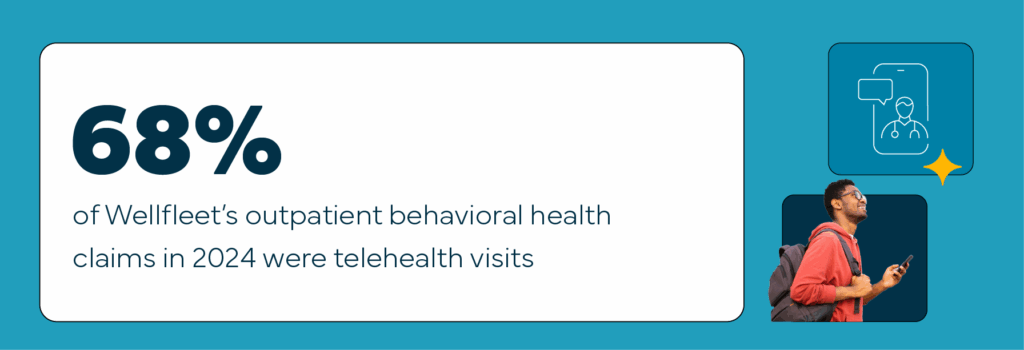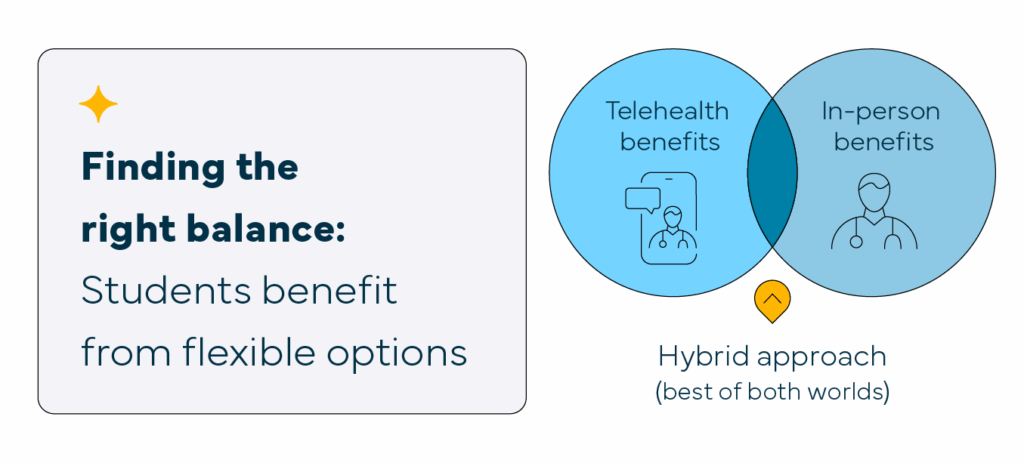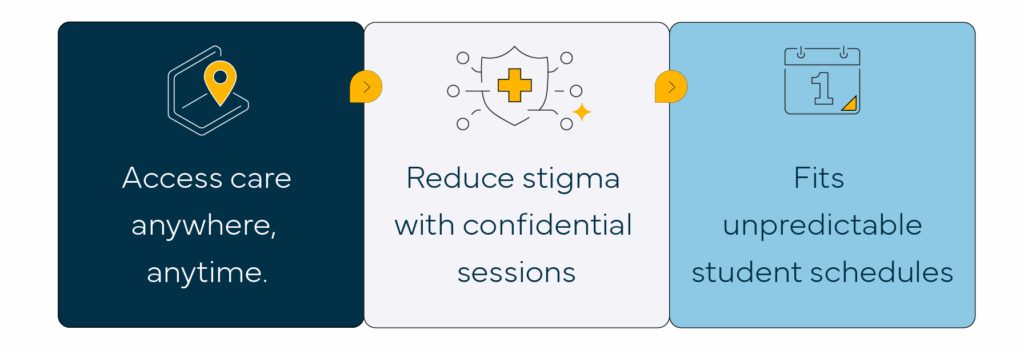In the plan year 2024, 68% of Wellfleet’s outpatient behavioral health claims were for telehealth visits, underscoring the central role virtual care now plays in supporting student mental health.1

For college and university students, telehealth offers clear advantages.
- It increases access to care regardless of location
- Reduces stigma by allowing sessions in private
- Fits more easily into busy and unpredictable schedules.
Especially during transitional periods, such as exam periods, internships, or moving between campus and home, telehealth can assist students in maintaining consistent mental health support without interruption.
Despite these benefits, challenges remain. Many students return home across state lines during breaks or transfer between institutions, and this can raise licensing and regulatory hurdles for providers, who may not be authorized to practice in the student’s new location.

Additionally, students without reliable internet or private spaces may find it challenging to fully engage in virtual therapy. While telehealth works well for many, some students may benefit more from in-person care or a hybrid model. To ensure telehealth remains a strong, equitable option for students, we must continue working toward solutions that address both technical and regulatory barriers.
Resources
1 Wellfleet (2025, April). Telemedicine Utilization for Behavioral Health Office Visits and Psychiatric Services Outpatient. Unpublished company document.
Wellfleet, Wellfleet Student, Wellfleet Special Risk, and Wellfleet Workplace are marketing names used to refer to the insurance and administrative operations of Wellfleet Insurance Company, Wellfleet New York Insurance Company, and Wellfleet Group, LLC (known in California only as Wellfleet Group, LLC dba Wellfleet Administrators, LLC). All insurance products are administered or managed by Wellfleet Group, LLC. Product availability is based upon business and/or regulatory approval and may differ among states.
CSR-SHIP-MAY-2025-03



